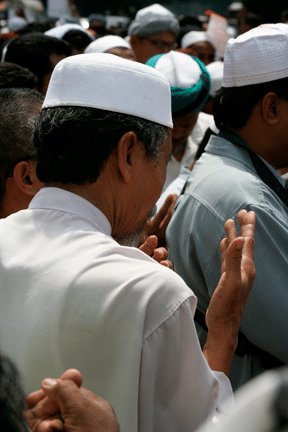Related Articles
Let’s Leave Shahada to Real Muslims
I write as a follow up to Gene Daniel’s important contribution on shahada confession, which appeared in the July 2014 issue of EMQ. The author notes that among Christian missionaries “there is disagreement about whether a believer in Christ can, with a clear conscience, say the second half, that Muhammad is his [God’s] messenger.”
How Islam Sees Itself
Ever since 9/11 we have been bombarded with generalizations as to the peaceful nature of Islam.
How Islam Sees Itself
Ever since 9/11 we have been bombarded with generalizations as to the peaceful nature of Islam.
Getting to Know Their Heart Hunger Is Key to Reaching Muslims
By and large, the religion of Islam has been presented to Western readers in its theologically orthodox aspect. Anyone who has read a fair amount of material on Islam is familiar with the confession, “There is no god but Allah, and Mohammad is his prophet.”
How Dialogue Can Be Used to Witness to Muslims
Some years ago in the city of Shikarpur, West Pakistan, a blind Christian evangelist and I were invited to meet with some of the Muslim religious leaders in the courtyard of a neighborhood mosque.

